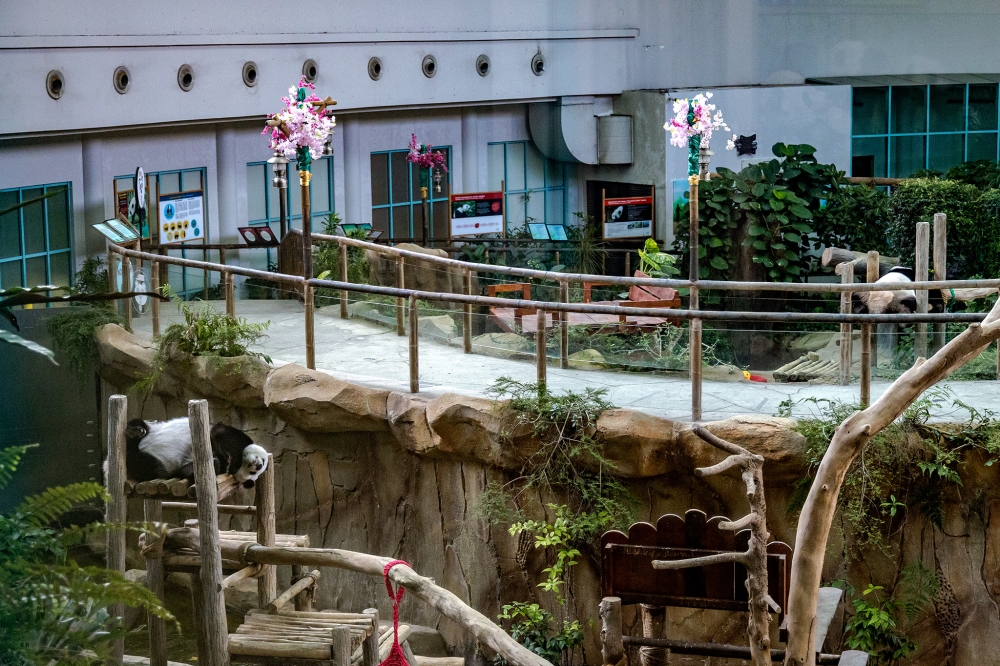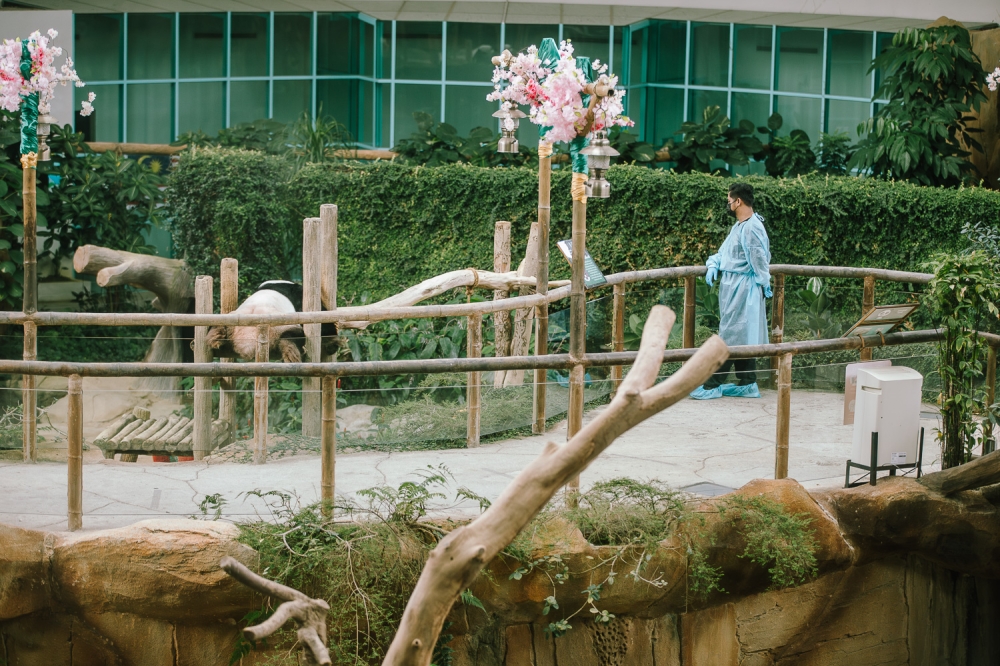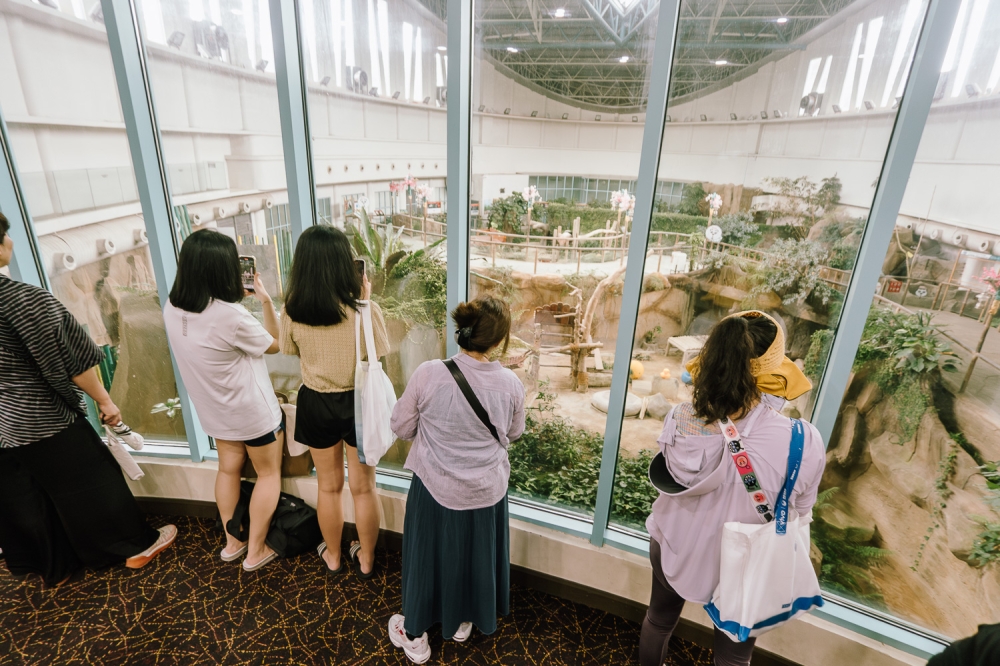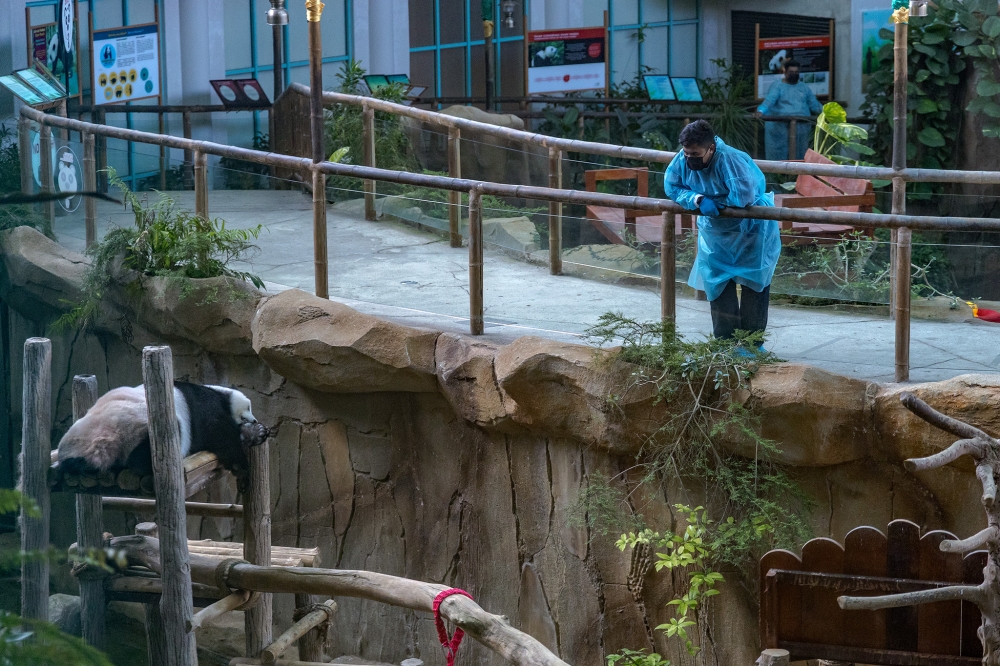KUALA LUMPUR, May 14 — As giant pandas Fu Wa and Feng Yi prepare to return to China this month after residing at Zoo Negara since May 2014, the beloved pair leaves behind a lasting impact and will be missed by many.
Having spent more than a decade away from their homeland at Zoo Negara, the pair have been on loan to Malaysia as part of the International Cooperation Project on Giant Panda Conservation.
Trivia: Both Feng Yi and Fu Wa also hold the current world record for the fastest natural conception of panda cubs outside of China at two years (reproduction usually takes eight to nine years in captivity and often requires artificial insemination).
A bear species endemic to China, giant pandas are employed as instruments of “panda diplomacy,” a practice by China in which it sends the creatures to partner countries worldwide as potent symbols of friendship, soft power, and goodwill.
As Malaysia prepares to bid this pair adieu, Malay Mail looks back at how Fu Wa and Feng Yi shaped their legacy as the first giant pandas in Malaysia.
Humble beginnings
Both Fu Wa, a male, and Feng Yi, a female, were born on August 23, 2006, at the world-famous Wolong Panda Reserve in Sichuan province, China.
As two-year-olds (about six human years), both also lived through the devastating 2008 Sichuan earthquake when the earthquake struck their conservation centre — just 30km from the epicentre.
Planned long before the quake, the two were also selected as part of eight prestigious ‘Olympic pandas’ on display at the Beijing Zoo as part of a special display during the Beijing Olympics the same year.
At six years old (about 19 human years), both Fu Wa and Feng Yi were then loaned by China for 10 years in conjunction with the 40th anniversary of bilateral ties between the two countries.
Fu Wa was renamed Xing Xing while Feng Yi was renamed Liang Liang during their stay in Malaysia.

Under quarantine, giant pandas Feng Yi (left) and Fu Wa (right) in deep slumber inside their enclosure at the Giant Panda Conservation Centre, National Zoo in Kuala Lumpur. — Picture by Firdaus Latif
Proud parents
During their stay at Zoo Negara’s Giant Panda Conservation Centre, the pair gave birth to three giant panda cubs — a significant feat for a species known for reproductive challenges.
Their eldest offspring, Nuan Nuan — a female — was born on August 18, 2015. Her name means “warmth” in Chinese — chosen to reflect the warm relations between China and Malaysia.
Two other cubs, Yi Yi and Sheng Yi — both females as well — were born on January 14, 2018, and May 31, 2021, respectively. Their names mean “friendship” and “peace and friendship” respectively in Chinese.
Under the terms of Chinese panda loan agreements, all cubs born on foreign soil are returned to China when they turn two.
Nuan Nuan was sent back to China in November 2017, while Yi Yi and Sheng Yi left Malaysia on August 29, 2023.
Altogether, the quintet are also fondly referred to as “the living symbol of China-Malaysia friendship” amongst panda fans.

A zookeeper watches over a sleeping Fu Wa at the Giant Panda Conservation Centre in Zoo Negara. — Picture by Raymond Manuel
Fulfilling life
At 19 years old (about 57 human years), both Fu Wa and Feng Yi are now approaching the later stages of their adulthood and are therefore set for ‘retirement’ in an environment more suited to their natural habitat.
Generally, a panda’s average lifespan in the wild is 14 to 20 years, but they can live up to 30 years in captivity.
As native to the mountainous region of China, both pandas maintained a diet that consisted almost entirely of bamboo leaves, stems, and shoots during their stay here.
With the exact date of their return still unannounced, they have been placed under quarantine with limited public interaction since April 18.
This is to ensure optimal health, meet permit requirements under international law, and undergo training to acclimatise for the flight from Malaysia to China.

Visitors observe Fu Wa and Feng Yi in their enclosure from the viewing deck at the Giant Panda Conservation Centre, Zoo Negara in Kuala Lumpur. — Picture by Raymond Manuel







